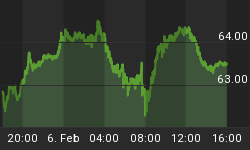
During the past couple of years, we have written about the debt situation facing both Europe and the United States. The economic data coming out of Europe has rapidly deteriorated yet the US economy has been resilient. This scenario has caused investors to believe that the US can decouple from the troubles in Europe. However, the US is as indebted as the countries in Europe (Figure 1). Instead, the key difference between the economies of Europe and the US has been the US Government's and US consumer's continued access to cheap credit while credit has tightened in Europe. Therefore, it is only a matter of time until the contagion from Europe spreads to the US.
Figure 1. 2010 US Debt/GDP Relative To European Countries (USD)
Sources: Eurostat, Continental Capital Advisors
Since 2010, commentators have argued that Greece was an isolated incident. However, what started in Greece has now spread to Italy and Spain. Despite the efforts by the ECB and IMF to support Europe's banking system, the 3rd and 4th largest economies in Europe have contracted for consecutive quarters and their stock markets are nearing 2009 lows (Figures 2 and 3).
Figure 2. 5-Year Chart of the Italian Stock Market (FTSE MIB Index)
Source: Bloomberg
Figure 3. 5-Year Chart of the Spanish Stock Market (IBEX 35 Index)
Source: Bloomberg
Though the US has similar debt metrics to many European countries, US equity markets, by contrast, are 100% higher than their March 2009 lows. Led in large part by the consumer sector (Figure 4 shows the S&P Retail index, RLX), US equities have managed to overcome two economic slowdowns in two years, in part because personal consumption expenditures have risen to a record high (Figure 5) despite numerous headwinds facing the consumer. As we discuss below, the current level of consumption is not based upon sound fundamentals but instead on the ongoing ability to access credit (Figure 6)
Figure 4. S&P Retail Index
Source: Yahoo! Finance
Figure 5. Personal Consumption Expenditures
Source: St. Louis Federal Reserve
Figures 6 and 7 show that both US and Spanish consumer credit outstanding has risen substantially and has been one of the leading drivers behind economic growth. However, while consumer credit in the US has nearly recovered to pre-2008 financial crisis levels, consumer credit in Spain has been declining since 2008.
Figure 6. Total US Consumer Credit Outstanding
Source: St. Louis Federal Reserve
Figure 7. Spanish Consumer Credit Outstanding (Millions of Euros)
Sources: Banco de Espana, Continental Capital Advisors
Consumption has been further driven by a declining savings rate that has been falling steadily since 2009 (Figure 8). However, an aging, heavily-indebted population should be increasing its savings.
Figure 8. Personal Saving Rate
Source: St. Louis Federal Reserve
With unemployment at 8.2% (Figure 9) and only slightly off its worst levels of the recession, consumer spending is unsustainable. Instead, consumption today is borrowing consumption from the future.
Figure 9. Civilian Unemployment Rate
Source: St. Louis Federal Reserve
Additionally, gasoline prices are once again near $4 (Figure 10). The US consumer and the economy face a major headwind that makes a continuation in the growth of consumer spending highly unlikely.
Figure 10. US Regular Conventional Gasoline Price
Source: St. Louis Federal Reserve
Figure 11 shows that consumer sentiment has returned to levels seen during major recessions. While this may not be surprising given high unemployment and gasoline prices, what is shocking is that consumers are spending at a record level despite this sentiment. In our view, the disparity between record consumption, high unemployment and low consumer sentiment shows the fragility of an economy fueled by debt.
Figure 11. University of Michigan: Consumer Sentiment
Source: St. Louis Federal Reserve
The broader Eurozone economy was initially able to shrug off the drag of Greece's funding crisis. However, rather than Greece being an isolated incident, high debt levels in so many other countries are causing those economies to follow the same path as Greece. In the US, not only are stock markets ignoring the sovereign risk of the US government, but also the US consumer is borrowing and spending as if the US economy were on sound footing. Such a high level of consumer spending is unsustainable and is causing many to believe that the US economy is decoupling from Europe's recession. We continue to believe that it is only a matter of time before the US economy is faced with the same dire situation that is currently facing Europe.















